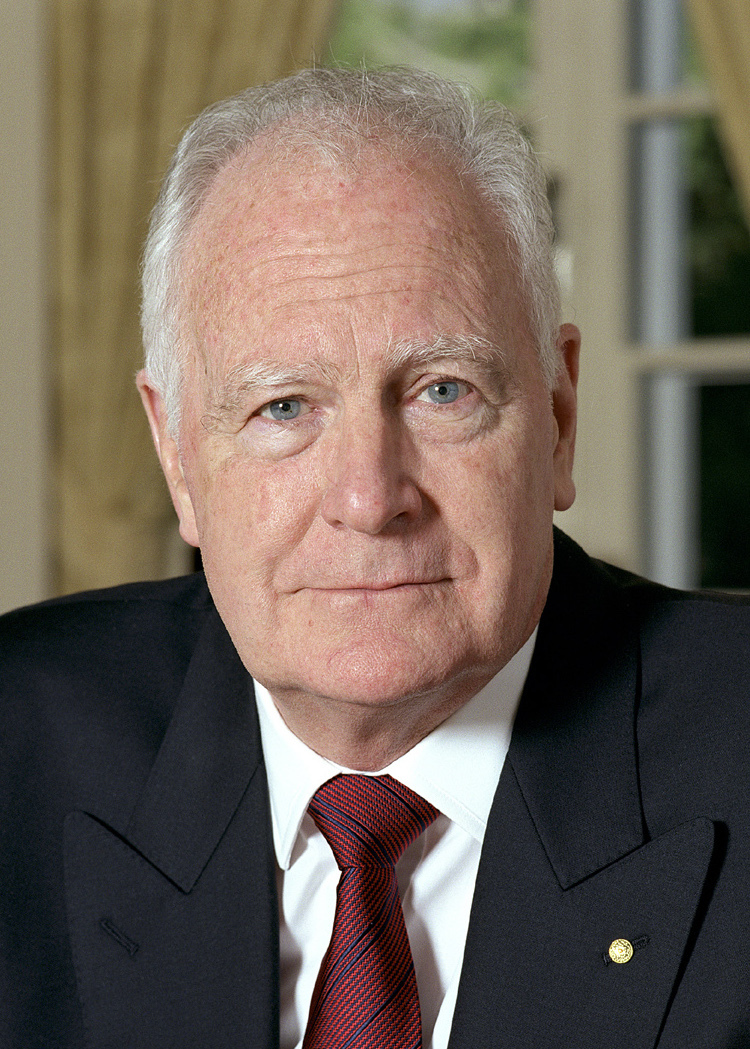A quick and sometimes messy guide to apologising
Posted on 12 Feb 2021
By Brett de Hoedt, mayor, Hootville Communications
Even not-for-profits make mistakes. In this help sheet, media professional Brett de Hoedt, aka the Mayor of Hootville, delves into the power of apologising and making it count.

Elton John said it best: sorry seems to be the hardest word. Maybe that's why so many leaders (Scott, Gladys, Dan and co) fail to deliver apologies that make the grade when the time comes to admit that they've done something wrong, or someone in their organisation has stuffed up.
As a media trainer I regularly guide people in the art of apology. I also host a podcast called The Hardest Word, which consists of real people making real apologies. I've listened to hundreds of apologies and even scored one from unlikely apologiser Donald J. Trump.
Apologies really matter and are easy to get wrong. For a fine example of the art of getting it wrong, consider Collingwood president Eddie McGuire, who recently began a press conference with the words "This is an historic and proud day for the Collingwood Football Club", then went on to unveil a damning review of the club's handling of racism. In response, many commentators felt compelled to show what a real apology looks like, as did the club's 150 players, who published their own 'Sorry' letter. Eddie didn't last much longer in the chair.
Sincere apologies can trigger renewal. That's why human rights advocate David Manne, speaking at Communities in Control in 2019, delivered an apology he hopes will one day be issued to the refugees who have suffered at Australia's hands. Debate continues about whether Kevin Rudd's 2008 national apology to the country's Indigenous people has really sparked change. Stan Grant (also at Communities in Control) expressed doubts in 2018, the same year that Scott Morrison apologised to victims of institutional child sex abuse.
Yet an apology's potential for healing is the reason why Deaf Can:Do, also known as the Royal South Australian Deaf Society, last month issued an open letter apologising for a series of actions - including selling its former home - that fractured the community it was supposed to help. Deaf advocates such as Gary Kerridge aren't satisfied and have written an extensive rebuttal, but the conversation has begun.
Note to leaders: Apologies are an ancient construct
There's a highfalutin idea that an apology can be given, received and accepted and that this will prompt the turning of a new page. What a cute concept! A genuine apology is unconditional, and that means having no expectations or requirements of the recipient's response. So gird your loins, make your apology and take what comes.
How your organisation can make an apology that might lead to forgiveness
Attitude matters: It's time to get your humble on
A lack of humility is one reason why so few people deliver meaningful apologies - or any apology at all. You need to accept that you are in the wrong. You need to feel and demonstrate that you are duly chastened. That's tough for most organisations and for leaders in particular.
Take us to your leader
An apology must be delivered by the person in charge if you want to lend your apology authority. This means that leaders may have to apologise for behaviour over which they realistically had no control. (That's why they get paid the big bucks.) In the words of a Reconciliation Australia fact sheet about the National Apology to the Stolen Generations, "The Apology was not an expression of personal responsibility or guilt by individual Australians. It was provided by the Australian Government in recognition of policies of past governments…"
So you can forget about the argument that you're not personally responsible and therefore you shouldn't have to apologise.
One speaker is usually enough - don't apologise by committee.
Faster, faster: Quickly decide whether you need to apologise
If you need to say sorry, deliver the apology ASAP: an apology delayed is an apology denied. Be on the front foot - a court-ordered apology is an oxymoron.
Face-to-face is best
A written apology gives you the ability to hone your messages, but it lacks emotional impact, so consider delivering your apology face-to-face or via video.
An apology to an individual or a small group must be delivered person-to-person. You can go public later. Do not apologise to a small group via the media or social media. Social media is fine as a way to speak to the general public, but you need to make a genuine effort to connect personally with those who are due your apology.
Content is key: Keep your apology simple and direct
Don't spin, obfuscate or meander - keep it short and simple. Don't bury your lead - get to the apology pronto. Skip the positioning statements such as Rupert Murdoch's "This is the most humble day of my life" (after the phone hacking scandal) or Eddie McGuire's instant classic: "This is an historic and proud day for the Collingwood Football Club."
Ensure that you specifically say that you apologise, that you are sorry and that you regret. Use those words more than once.
Phrases and sentiments to use
- "I was wrong and I am sorry."
- "I apologise to everyone we offended."
- "We are ashamed of our behaviour."
- "That was the wrong thing to do. It should never have happened."
- "I spent too long denying the truth and ignoring our critics. Our delays only made things worse."
- "Here are the changes we are making…"
Phrases and sentiments to avoid
- "To anyone we offended…"
- "If we've caused any offence…"
- "We have a plan to fix this…"
- "We're glad to close this chapter and move on …"
For more examples of apology failures, penned by Our Community's thinker-in-residence, Chris Borthwick, see the help sheet here.
Hang them out to dry
If someone needs to be named and shamed, name and shame them as per this example from anti-Trump campaign group the Lincoln Project, which discovered one of its own was making unsolicited sexual approaches to teenagers and young men:
"John Weaver led a secret life that was built on a foundation of deception at every level. We extend our deepest sympathies to those who were targeted by his deplorable and predatory behavior. We are disgusted and outraged that someone in a position of power and trust would use it for these means."
Speak to your audience
Direct your apology to specific separate audiences or individuals and name them. Be sure to have a clear hierarchy. Your staff may feel they - not your donors - are due the lion's share of your apology.
Laughs? Nope
This is a rare occasion when I recommend against using humour. Play it straight and don't try to charm your way back into the good books. That's for later.
The singular pronoun
The CEO or leader making the apology should use the word "I" rather than "we" even though this may seem inappropriate when speaking on behalf of a company. Using "I" better implies that the speaker genuinely takes responsibility.
No conditions apply
Your apology must be wholehearted and unconditional. Resist the temptation to list mitigating circumstances, as it will only dilute your apology.
Ditch the script
Do you need a script when you are fighting with your beloved? Of course not. The words pour out of your mouth because you're speaking - at least at that moment - from the heart. Similarly, the CEO or leader making the apology should be able to make that apology with minimal reference to notes or script. Reading out an apology word-for-word from a piece of paper weakens the apology. That's the sort of thing people do on advice from their lawyers.

Video news release? See ditch the script
A long time ago a short-term Governor-General of Australia, Peter Hollingworth, issued an apology in a series of pre-recorded video grabs to be distributed to television news services. This was on the advice of a blue-chip public affairs consultant. It was stupid advice. The raw video clips were leaked and made him look calculating and insincere - after all, who needs a script and rehearsals if they're making a sincere apology?
Emotions are important
Your leader's apology must not look robotic. Emotions are good, although blubbering and gushing - the sort of bollocks we see when YouTube celebrities apologise - are not. Audiences will interpret this as the speaker being self-centred and self-pitying.
Remedy = sincerity, so take action
I was contacted by the CEO of a fundraising company on a Saturday afternoon. He was in crisis - it had been discovered that he'd been underpaying dozens of staff for years. He wanted help with communications. "What compensation are you offering beyond back pay?" I asked. "None," he replied. The call soon ended. Sincerity matters in apologies. Evidence of a remedy or generous compensation being offered voluntarily and in good faith demonstrates your sincerity. Take remedial action before apologising.
By the way, one of the most powerful ways to express regret is to sack the senior people responsible. Not to accept their resignation, not to move them sideways, but to sack them. Just saying.
Rinse and repeat
Don't think that an apology is a one-off. Repeat your apology to different audiences via different channels ad nauseam until people are sick of hearing it.
Brett de Hoedt hosts the award-winning podcast The Hardest Word. He is also the Mayor of Hootville Communications. A great many people owe him an apology.
More information
Article: How not to apologise
The apology to refugees: David Manne at Communities in Control 2019
10 years on from Sorry Day and no closer to equality: Stan Grant at Communities in Control 2018
Deaf Can:Do (Royal South Australian Deaf Society): Open letter apology | Advocate's rebuttal
Help sheet: What to do in a media crisis: don't run, don't hide
ICDA newsletter special edition: Crisis management
More help sheets: Communications for not-for-profits